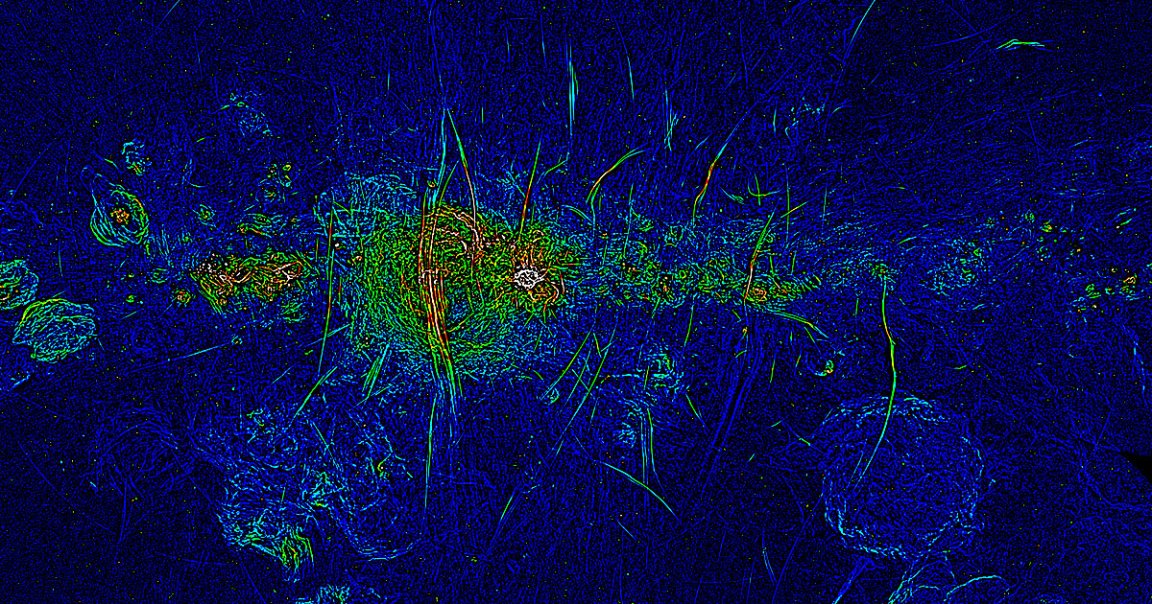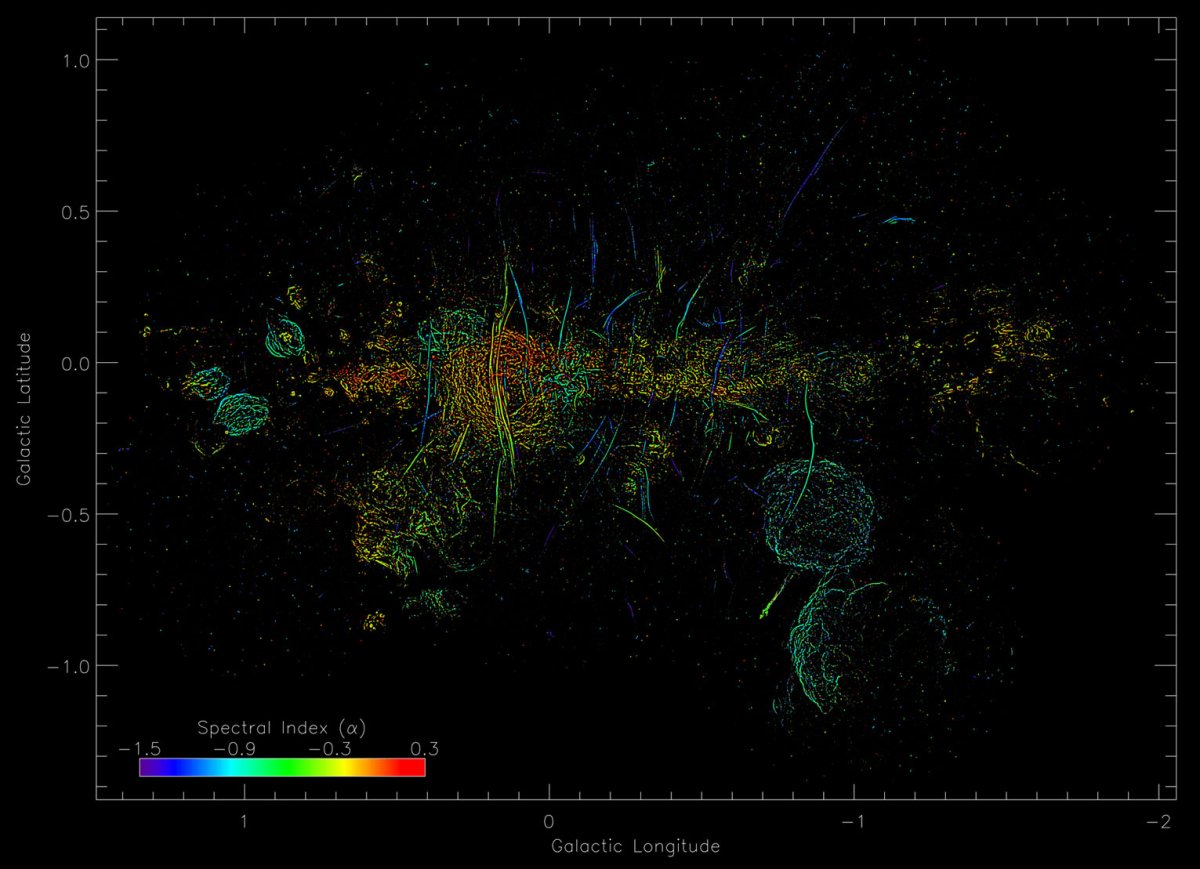
Over the last 35 years, Northwestern University astronomy professor Farhad Yusef-Zadeh has been studying mysterious strands made up of cosmic ray electrons stretching up to 150 light years across the center of the Milky Way.
And now, with he help of his team, Yusef-Zadeh was able to find ten times more strands than previously discovered — which is striking, since we still have no idea what they are made of, nevermind where they came from.
Using the South African Radio Astronomy Observatory MeerKAT telescope, the team was able to get a panoramic view of almost 1,000 of these mysterious filaments, as detailed in a new study accepted into The Astrophysical Journal Letters.
“We have studied individual filaments for a long time with a myopic view,” Yusef-Zadeh said in a statement. “Now, we finally see the big picture — a panoramic view filled with an abundance of filaments.”
Needless to say, it’s a significant moment in his career-long investigation.
“Just examining a few filaments makes it difficult to draw any real conclusion about what they are and where they came from,” he added. “This is a watershed in furthering our understanding of these structures.”
To create the panorama, the team stitched together 20 separate observations made over 200 hours by the MeerKAT observatory. The resulting image is awe-inspiring, and “like modern art,” according to Yusef-Zadeh.

Despite the advancements and an abundance of questions left to answer, the team is willing to make some educated guesses.
The variation in the radiation emitted by the filaments for instance suggest they aren’t the leftovers of supernovae, but rather the result of past activity of the supermassive black hole suspected to be at the center of our galaxy.
“This is the first time we have been able to study statistical characteristics of the filaments,” Yusef-Zadeh said in the statement. For instance, the team discovered that magnetic fields are being amplified along the strands.
They are also spaced apart from each other at exactly the same distances.
“We still don’t know why they come in clusters or understand how they separate, and we don’t know how these regular spacings happen,” Yusef-Zadeh said.
But getting a full understanding will require “more observations and theoretical analyses,” he said, a process that “takes time.”
“Every time we answer one question, multiple other questions arise,” he added.
READ MORE: Nearly 1,000 mysterious strands revealed in Milky Way’s center [Northwestern University]
More on the Milky Way: Scientists Surprised by Mysterious Barrier at the Core of our Galaxy